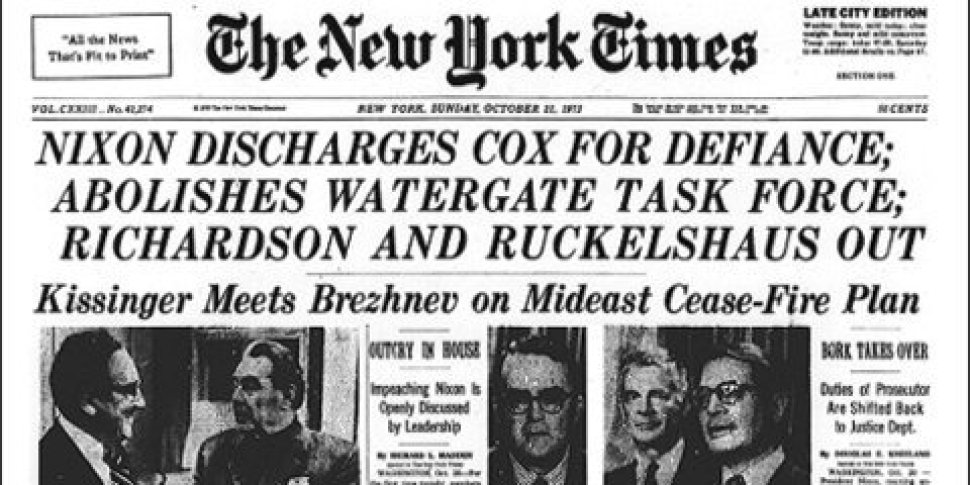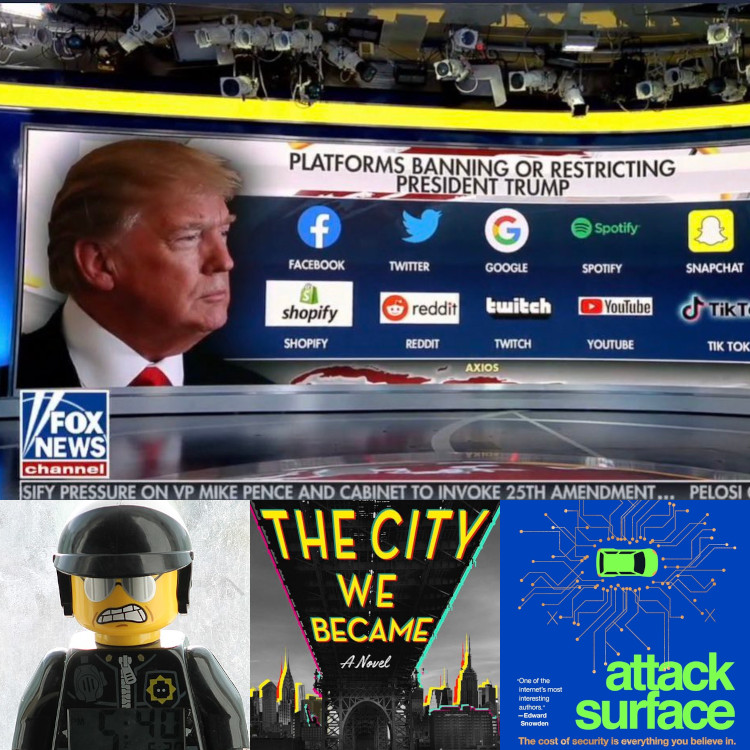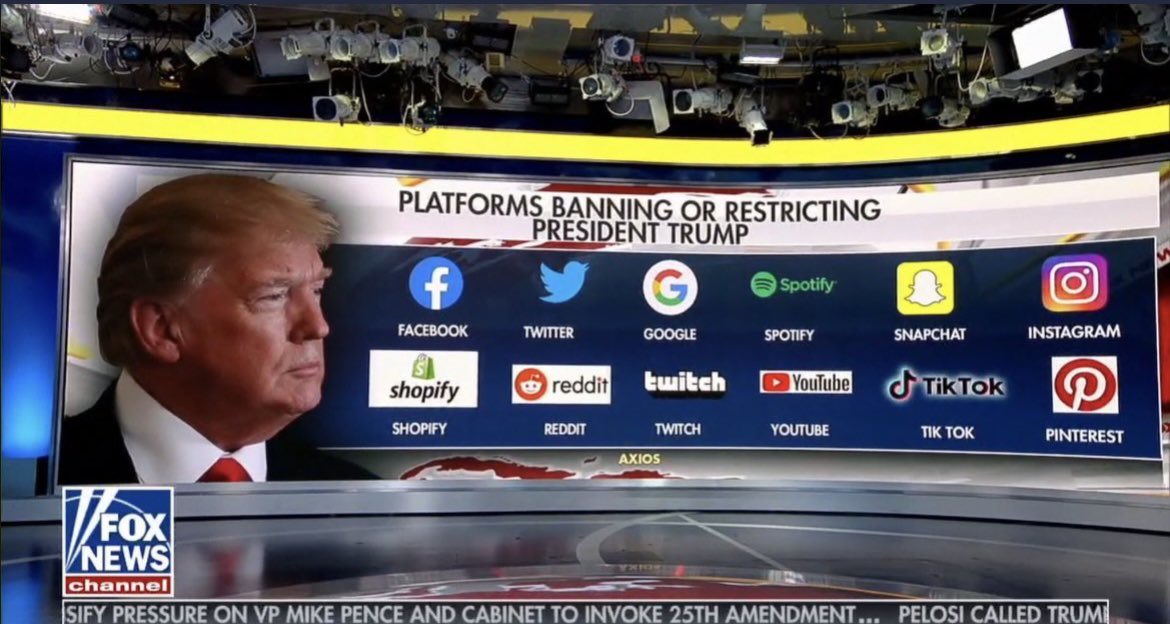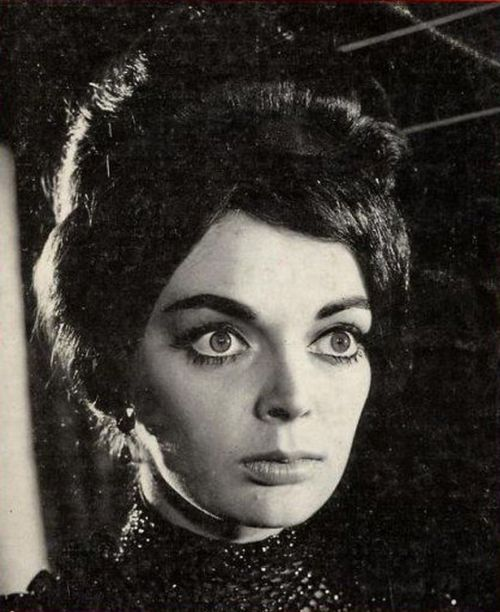
Macarthur fellow and Hugo-award-winner @nkjemisin's 2019 book "The City We Became" is both a fantastic contemporary fantasy novel and a scorching commentary on the infantile nature of the racist dogma of HP Lovecraft and his ilk.
hachettebookgroup.com/titles/n-k-jem…
1/
hachettebookgroup.com/titles/n-k-jem…
1/
It's a quest novel about a group of New Yorkers who awaken one day to discover that they are mystical avatars of the city, which has awakened and been reborn as a kind of powerful colony organism.
2/
2/
There's an avatar for each of the five boroughs, plus a "primary" who represents the city as a whole. As with all births, this one is somewhat traumatic - but NYC's birth is uniquely fraught.
First, the five boroughs must find one another and connect with the primary.
3/
First, the five boroughs must find one another and connect with the primary.
3/
But they must do all this while under sustained assault from a mystical, transdimensional, Lovecraftian horror, a great adversary to all of our Earth's living cities - but an adversary that had been believed to be powerless against cities after their births.
4/
4/
The enemy manifests as a Karen, a white woman clad all in white, dogwhistling racist tropes, summoning police, weaponizing vast fortunes to evict its enemies or distort their culture. It is attended by harbingers - human beings infected with fluttering white tentacles.
5/
5/
The city's avatars are a BIPOC, queer, all-ages group, spiky and disunified, forced to resolve their differences as they quest for one another and battle the adversary in a race to save the city - and ultimately, our universe - from its eldritch horrors.
6/
6/
As Lovecraft pastiches go, this is pretty fucking great stuff. Jemisin invokes Lovecraft's purple prose and vivid imagery to evince the real frisson of his horror, while simultaneously puncturing Lovcraft's noxious racism, which famously manifested in his disgust for cities.
7/
7/
As with @bymattruff's 2016 novel LOVECRAFT COUNTRY, Jemisin does fantastic work in puncturing Lovecraft's atavistic horror of The Other by holding the mirror to it - inviting the reader to empathize with the object of that reflexive fear and disgust.
memex.craphound.com/2016/02/16/mat…
8/
memex.craphound.com/2016/02/16/mat…
8/
But THE CITY WE BECAME represents an advance on LOVECRAFT COUNTRY in an important regard: the way that it treats with the simplicity of the conservative worldview and the complexity of the real world.
9/
9/
Many have observed that conservativism's nostalgia for "simpler times" is really a yearning for childhood: the reason life was simpler when you were a child isn't because times were simpler - it's because you were a child, sheltered from life's complexities by your parents.
10/
10/
Hence conservativism's daddy issues, its yearning for strongmen who'll make the nation great through discipline, ordering and control.
In this telling, xenophobia is just the adult version of a toddler's unwillingness to eat their peas if they touch the mashed potatoes.
11/
In this telling, xenophobia is just the adult version of a toddler's unwillingness to eat their peas if they touch the mashed potatoes.
11/
An infantile, irrational fussiness that, in turn, is antithetical to cities - the sprawling, organic, self-organizing, diverse, chaotic places where ideas and languages and peoples and smells and tastes all rub up against each other.
12/
12/
Jemisin's mythical battle of the messy city and the Lovecraftian adversary's desire for sterile order is a kind of eldritch dramatization of the fight between Robert Moses and Jane Jacobs - a fight that goes all the way back to Plato.
13/
13/
Plato's Republic, after all, is the ultimate conservative work - the belief that people are born to virtue, and that virtue determines who is fit to rule and who must be ruled over because they cannot govern themselves.
14/
14/
Plato even presaged Lovecraft's disgust with complex polyrhythms ("maddening drums"), decrying "broken rhythms" for their potential to disorder the listener's self-control - a theme that repeats in Jemisin's book as the avatar of Brooklyn spits weaponized rhymes.
15/
15/
An obsession with neatness, categories, purity and hierarchy are the hallmark of both toddlers and conservatives, and Jemisin reveals that Lovecraft's squamous, rugose revulsions are just three grossed-out toddlers in a trenchcoat throwing their carrots on the floor.
16/
16/
There's many ways to carve our ideological divisions right now. One of the most powerful fracture lines is simplicity-vs-complexity - the need to bleach everything to sterility versus the understanding that complex, thriving, diverse systems are necessary to our survival.
17/
17/
Like all the best "urban fantasy," THE CITY WE BECAME is a love-hymn to cities themselves as living climax systems. More than that, Jemisin wields her city against the forces of infantile reaction.
eof/
eof/
• • •
Missing some Tweet in this thread? You can try to
force a refresh








